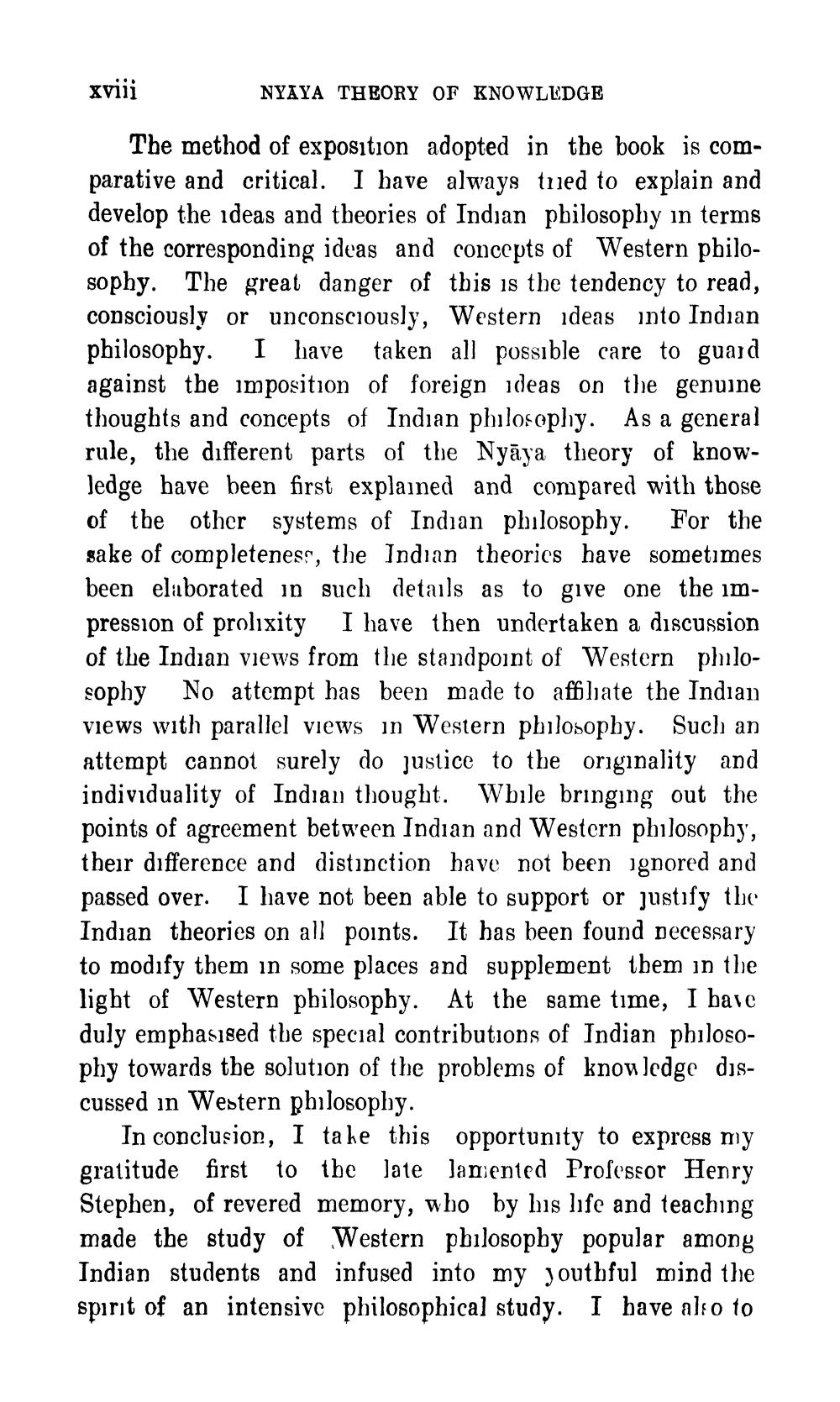________________
xviii
NYAYA THEORY OF KNOWLEDGE
The method of exposition adopted in the book is comparative and critical. I have always tued to explain and develop the ideas and theories of Indian pbilosophy in terms of the corresponding ideas and concepts of Western pbilosophy. The great danger of this is the tendency to read, consciously or unconsciously, Western ideas into Indian philosophy. I have taken all possible care to guard against the imposition of foreign ideas on the genuine thoughts and concepts of Indian philosophy. As a general rule, the different parts of the Nyāya theory of knowledge have been first explained and compared with those of the other systems of Indian philosophy. For the sake of completeness, the Indian theories have sometimes been elaborated in such details as to give one the impression of prolixity I have then undertaken a discussion of the Indian views from the standpoint of Western phulosophy No attempt has been made to affiliate the Indian views with parallel views in Western philosophy. Such an attempt cannot surely do justice to the originality and individuality of Indian thought. Wbile bringing out the points of agreement between Indian and Western philosophy, their difference and distinction have not been ignored and passed over. I have not been able to support or justify the Indian theories on all points. It has been found necessary to modify them in some places and supplement them in the light of Western pbilosophy. At the same time, I bave duly emphasised the special contributions of Indian philosophy towards the solution of the problems of knowledge discussed in Western philosophy.
In conclusion, I take this opportunity to express my gratitude first to the late lamented Professor Henry Stephen, of revered memory, who by his life and teaching made the study of Western pbilosopby popular among Indian students and infused into my youthful mind the spirit of an intensive philosophical study. I have also to




